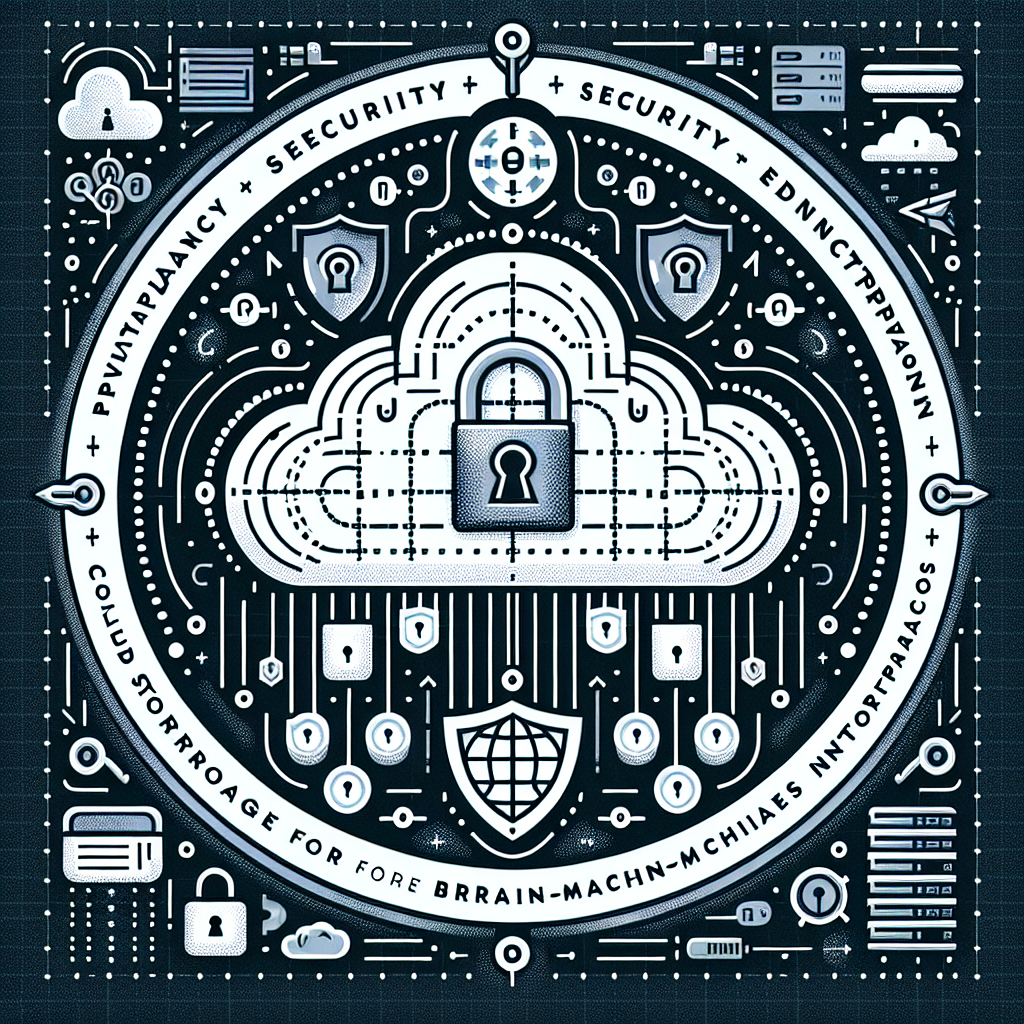Unlock encrypted content
Please enter your SSCE key to initiate on-the-fly decryption.
Decryption key: (Click cancel if you don't have the key)
Copied link to clipboard.
This feature is unavailable for free accounts. Upgrade now and enjoy all Premium benefits.
Go Premium!
This feature is unavailable for free accounts. Upgrade now and enjoy all Premium benefits.
Go Premium!
Please open this page in browser ( Google Chrome or Safari ) to use this feature.
Open In Browser
Data Privacy, File Synchronization, and the Future of Data Storage
Random related video for this blog.
Copied share link to clipboard.
With the rapid advancement of technology and the increasing reliance on digital platforms, the need to protect personal and sensitive information has become paramount. In this article, we will explore the importance of data privacy and file synchronization, as well as delve into the future of data storage.
Data Privacy: Protecting Your Personal Information
In today's digital age, the amount of personal data being generated and stored is staggering. From social media platforms to online banking, our personal information is constantly being collected and stored by various companies and organizations. This raises concerns about the security and privacy of our data. Data privacy refers to the protection of personal information, ensuring that it is collected, stored, and used in a responsible and secure manner. It involves implementing measures to safeguard data from unauthorized access, use, or disclosure. Data privacy is essential to protect individuals' rights and maintain trust in the digital world. One way to ensure data privacy is through end-to-end encryption, a method that encrypts data at the source and decrypts it only at the intended destination. This ensures that even if the data is intercepted during transmission, it remains unreadable to unauthorized parties. FileLu, a cloud storage provider, offers end-to-end encryption as part of its commitment to data privacy.File Synchronization: Seamless Access to Your Files
File synchronization, also known as file syncing, is the process of ensuring that files are up to date and consistent across multiple devices or locations. It allows users to access their files from anywhere, on any device, without the need for manual file transfers or updates. With file synchronization, you can work on a document on your computer and seamlessly continue editing it on your smartphone or tablet. Changes made to the file on one device are automatically synced to all otherconnected devices, ensuring that you always have the latest version of your files at your fingertips. FileLu offers file synchronization as part of its cloud storage service. By uploading your files to the FileLu cloud, you can access and sync them across all your devices, making it easy to collaborate with others and stay productive on the go.
The Future of Data Storage: Machine Learning, Blockchain, and More
As technology continues to evolve, so does the future of data storage. Several emerging trends and technologies are shaping the way we store and manage data. One such trend is the use of machine learning algorithms to optimize data storage and retrieval. By analyzing patterns and user behavior, machine learning algorithms can predict which data is most frequently accessed and prioritize its storage to ensure faster retrieval times. This not only improves efficiency but also reduces costs by optimizing storage utilization. Blockchain technology is another innovation that is revolutionizing data storage. Traditionally associated with cryptocurrencies, blockchain offers a decentralized and secure way to store and share data. With blockchain, data is stored in a distributed network of computers, making it nearly impossible for hackers to tamper with or corrupt the data. This technology has the potential to transform the way we store and secure sensitive information. Conclusion Data privacy and file synchronization are critical components of our increasingly digital lives. Protecting personal information and ensuring seamless access to files are essential for individuals and businesses alike. With the rapid advancement of technology, the future of data storage looks promising, with machine learning and blockchain leading the way. As we move forward, it is important to stay informed about the latest trends and technologies in data privacy and storage. By adopting secure and reliable solutions like FileLu, individuals and businesses can safeguard their data and embrace the benefits of seamless file synchronization.Frequently Asked Questions (FAQs)
Question: What are the benefits of file synchronization? Answer:
File synchronization allows you to access your files from anywhere, on any device, ensuring that you always have the latest version of your files. It simplifies collaboration and improves productivity.
Question: How does end-to-end encryption protect data privacy? Answer:
End-to-end encryption ensures that data is encrypted at the source and can only be decrypted by the intended recipient. This prevents unauthorized access and ensures the privacy and security of your data.
Question: How does machine learning optimize data storage? Answer:
Machine learning algorithms analyze patterns and user behavior to predict which data is most frequently accessed. By prioritizing the storage of frequently accessed data, machine learning optimizes storage utilization and improves retrieval times.
Question: How does blockchain technology enhance data storage? Answer:
Blockchain offers a decentralized and secure way to store and share data. By storing data in a distributed network of computers, it ensures data integrity and makes it nearly impossible for hackers to tamper with or corrupt the data.
Case Studies: 1. Company X, a multinational corporation, implemented file synchronization using FileLu's cloud storage service. This allowed their employees to access and collaborate on files from anywhere, improving productivity and streamlining workflows. 2. Organization Y, a healthcare provider, prioritized data privacy by choosing FileLu's end-to-end encrypted cloud storage solution. This ensured the confidentiality and security of patient records, meeting regulatory requirements and maintaining patient trust. 3. Start-up Z leveraged machine learning algorithms to optimize their data storage strategy. By analyzing user behavior, they were able to identify frequently accessed data and allocate storage resources accordingly, resulting in improved performance and cost savings.
By Amelia Isabella.
Email: [email protected]
Related
The Importance of Data Synchronization and File Redundancy in Cybersecurity...
June 3, 2023
Read More
Effortless File Organization with Customizable Storage Plans and High-Speed File...
June 3, 2023
Read More
Popular
Revolutionizing Data Management: Innovations in Storage, Security, and Sustainable Technology.
September 24, 2025
Read More
The Future of Technology: Data Privacy, Self-Driving Cars, and Hybrid...
September 21, 2025
Read More
Exploring the Future of Data Management: Security, Efficiency, and Cognitive...
September 28, 2025
Read More
The Future of Data Storage: Exploring Advanced Encryption, Mobile Integration,...
October 5, 2025
Read More
Latest
The Future of Data Storage: Exploring Advanced Encryption, Mobile Integration,...
October 5, 2025
Read More
Exploring the Future of Data Management: Security, Efficiency, and Cognitive...
September 28, 2025
Read More
Revolutionizing Data Management: Innovations in Storage, Security, and Sustainable Technology.
September 24, 2025
Read More
The Future of Technology: Data Privacy, Self-Driving Cars, and Hybrid...
September 21, 2025
Read More
The Future of Cloud Storage: Innovations in Scalable Storage, Synchronization,...
September 10, 2025
Read More
The Future of File Storage: Exploring Cryonics, Transhumanism, and Advanced...
September 7, 2025
Read More
Innovations in Cloud Storage and Data Management: Navigating the Future...
September 3, 2025
Read More
The Future of Technology: Integrating Virtual Reality, Autonomous Driving, and...
August 27, 2025
Read More
The Future of File Management: Innovations in Data Sovereignty, Security,...
August 24, 2025
Read More
The Future of Data Management: Exploring Innovations in Robotics, Genetic...
August 20, 2025
Read More
The Future of Data Management: Exploring Efficient Technologies in File...
August 13, 2025
Read More
The Future of Technology: Exploring Innovations in Artificial Intelligence, Data...
August 10, 2025
Read More
The Future of File Management: Exploring Cloud-Based Backup, Video Storage,...
August 6, 2025
Read More

























